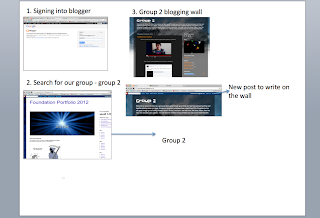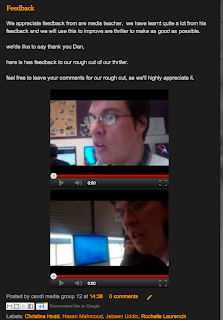Group 2
Welcome to Group 2's blog. As a group we have gone through good times and we have enjoyed working well together sharing jokes and ideas. Are group dynamics has always been cheerful and full of laughter during are group blogging and filming process. Here in Group 2 we have : are main man, the boss, Hasan, Next we have are adorable joyful Jebeen, next we have the cheerful loving Christina and last but not least Rochelle
Tuesday, 22 May 2012
Thursday, 29 March 2012
SIGNING OFF MESSAGE
Well, this is my final post, it has been fun working with group 2, and it has been a very fun experience making a thriller. I have enjoyed these few months a lot.
Signing off post
Throughout the media coursework I have learnt a lot especially from camera angles and sounds. I have throughly enjoyed every bit of it.
Feedback from The Run
Here is a small clip where a student is given their opinion on 'The Run'.
Also, I have received feedback from friends on facebook.
Here is a quote from a students that has seen The "Run and what they thought about it.
‘OMG I cant believe you actually made this! This is so GOOD. It kept me in suspense throughout the opening. I would so like to see the finish thriller!’
Student from Candi
Ife
Thursday, 22 March 2012
Q2: How does your media product represent particular social groups?
Q5: How did you attract / address your audience?
The rough cut feedback did help to improve our group's final film opening. Our rough cut presented many unnecessary scenes that we did not need and with the help of our teacher pointing out this issue it allowed us to then get rid of these scenes and make our thriller opening much more effective.
Furthermore, there was an issue with the sound in our rough cut, we used narration throughout of the main characters perspective of what was going on.. there however was a gap in the middle of our film because the words in the narration did not match the actions going on in the thriller itself. With the teachers feedback we could see this problem and then got the chance to remove it. Our teacher said to get rid of the gap so we did this by removing the unnecessary scenes and slowing down the voice to match the actions.
Thirdly our thriller rough cut had a certain effect/theme edit running throughout which gave the footage a kind of flashy effect, our teacher said that our film may be more effective if this effect only took place when the main character was having a flashback so the audience would know the difference between the character's reality and the character's past. So we edited our footage so it would then do this.
In conclusion the feedback we gathered made our work alot better and alot more relatable to our target audience. Without this feedback our work would not have been as effective and we would not have reached our full potential as a group.
We have reached our audience so far through a cinema screening as a group and then we indiviudally uploaded our film to facebook as well as just showing our friends around college to get their opinion.
Q6: What have you learnt about technologies from the process of constructing this product?
Q6: Technologies you have used
by: christinahodd
Here is an example of a blog i wrote explaining how i used the camera during our project in more detail than the animation above:
Here is an example of a blog i wrote to explain how i used blogger during our project in more detail than the animation:
Here are some screen grabs from our skill's audit explaining how we used final cut pro:
by: christinahodd
Here is an example of a blog i wrote explaining how i used the camera during our project in more detail than the animation above:
Here is an example of a blog i wrote to explain how i used blogger during our project in more detail than the animation:
Here are some screen grabs from our skill's audit explaining how we used final cut pro:
Monday, 19 March 2012
Q4. Who would be the audience for your media product?
Q1. In what ways does your media products use, develop or challenge forms and conventions of real media products?
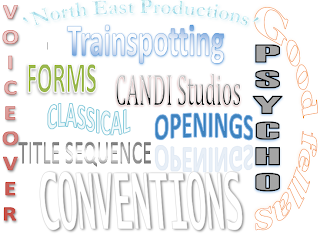 we have used intertextuality for our film starting because most films start the way our Thriller trailer started off.
we have used intertextuality for our film starting because most films start the way our Thriller trailer started off.first it showed the 'CANDI' studios, and the 'North East' production
THE FILM PYSCHO WAS A BIG INSPIRATION IN OUR THRILLER TRILER.
CONVENTIONS TITLE SEQUENCE
IT USES THE CLASSICAL OPENING WITH ESTABLISHED CLOSE UP SHOTS AND GOING BACK INTO FLASHBACKS.
I HAVE LEARNT THAT IN THE TITLE SEQUENCES YOU HAVE TO PUT IN THE MAIN IMPORTANT PEOPLES NAMES, THEN YOUR THRILLER NAME, AND THEN EVERYONE ELSE E.G. MUSIC COMPANIES, COSTUME DESIGNERS, FILM EDITORS (ECT)
Q3. What kind of media institution might distribute your media product and why?
For our film 'The Run' we have only made an opening of our film.
The start of our film was only funded by CANDI studios which is a local small company. ( also in our opening sequence)
as we didnt have a chance to finish our film we will need fundings from Companies such as: BFI, Funding, Lottery, BBC, FILM4, Privert Investors, Film Culture Funds, in addition we need to market our thriller so we would use Facebook, Youtube which are both a source of Viral marketing because we want our film to be small budgeted and we will also use the internet as a big promotion and a big source of distribution. We are also using Home Grown Stars who were born and brought up in North London.
The start of our film was only funded by CANDI studios which is a local small company. ( also in our opening sequence)
as we didnt have a chance to finish our film we will need fundings from Companies such as: BFI, Funding, Lottery, BBC, FILM4, Privert Investors, Film Culture Funds, in addition we need to market our thriller so we would use Facebook, Youtube which are both a source of Viral marketing because we want our film to be small budgeted and we will also use the internet as a big promotion and a big source of distribution. We are also using Home Grown Stars who were born and brought up in North London.
Q4. who would be the audience for your media product?
Q5. How did you attract/address your audience?
Q6. What have you learnt about technologies form the process of constructing this product?
you can use different fonts in different sizes up to XL and Xs but also we can use BOLD, italic, and underline, and we can use different colours and highlights,
we can also put in LINKS, urls and pictures
we also learnt how to use a camera, heres the work from before that we blogged
Q1. In what ways does your media product use, develop or challenge forms and conventions forms and conventions of real media products?
Here is a clip, where I have discussed the conventions of title sequences and openings. In addition, i have discussed whether we have followed the conventions ourselves.
Technologies used to make this was ClipGrab - to download clips from youtube and Windows Movie Maker to generate the clip(and handbrake to convert it to a mpeg 4 as the file was too large).
Technologies used to make this was ClipGrab - to download clips from youtube and Windows Movie Maker to generate the clip(and handbrake to convert it to a mpeg 4 as the file was too large).
Q2. How does your media product represent particular social groups?
Representation in media terms simply means how different media products communicate with the audience. Media products tend to rely on STEREOTYPES. From back in September to November we studied TV drama. We we establish that not just in TV dramas characters are used to symbolise a certain group of people in society. For example youths are considers as being thugs and thief's. From this representation people will then generalise to this to all the youths in society. Some stereotypes contain a hint of truth in them but they tender to be exaggerated for entertainment, BUT this can cause a negative impact on different social groups. People shouldn't be marginalised due to media products. The more the media show negative representation the more they are willing to believe it.
Here, I have used Final Cut Pro to explain the representation in The Run. In addition I have used real media 'kidulthood to support are representation.
Furthermore, real media that supports our The Run is 4321. These women cut stereotypes as they are powerful within there own self.
Q3. What kind of media institution might distribute your media product and why?
Here I have used an animation of how we will distribute The Run.
Context of distribution
the 3 distribution areas:
- Hollywood
- British
- Localised
In Hollywood they have the big six: Fox, Paramount, Sony, Disney, Universal and TimeWarner. Each of these are conglomerate. Conglomerates are when small companies group together to create a big powerful company. Conglomerates are an advantage when wanting to distribute films to the audience as they offer advertisements and publicity, Hollywood is global when marketing and dominates largely on cinema chains, so almost different audiences from different cultures are aware of the film.
Hollywood is highly significant for marketing and use ¼ of the films budget to spend on marketing and Hollywood offers a big production value as they offer good quality picture because it is done through a digital process and not on a 35mm, which is a long stripes of footage that need to be watched because it is a complicated system as it can malfunction, digital process came out about 5 years ago.
Apart from Hollywood there are British and localised distributers. British films do not have much money to market or to distribute their film. The best way for them to do this is to look for funding, for example, from the BFI where they offer grants to those "up-and-coming" filmmakers. BFI stands for British Film Institute they offer approximately £18 million every year to invest in feature films. Also, there are funds coming from BBC and Film4. They are the most established british production company and have an average production value. In addition, there is the chance to go to film festivals where they attract distributers and see whether they decide to distribute your film.
British films are largely seen by British audiences and so it wouldn't be globally known. British films are small budgeted, and will only use British actors as the main characters. Such as Simon Pegg and Adam Deacon as .This will only attract the british audience. They have low production value and these main actors wouldn’t sell the film around the world. A British low production value such as attack the block was distributed by screen gems, which is subsidiary of Sony pictures entertainment, and produce by film4 Production. The budget for attack the block was £9 million unlike Avatar that has high production value, that used actress Zoe Saldana, actor Giovanni Ribisi and actress Sigourney Weaver all of which are well know over the world. Avatar budget was $237 million, avatar and Attack the block were both science fiction genres but avatar is well known for their special effects because they had a box office of $2,782,275,172 unlike Attack the block that was lacking in special effects and had a box office of £3,772,127.
British films have to rely on social networking sites such as Facebook, Twitter, and Tumblr. These social networks are a free source of viral marketing as it where audience spread and share there opinion of a film hopping that it will catch on with the nation. Youtube is another free source of viral marketing because it statistically measures how many people that have view your film or a film. This will another way of distributing The Run as many of the viewers could be producers and distributers, they may become interested in and want to invest further into The Run. This is possible as an independent filmmaker Fede Alvarez became a viral phenomenon, as he put up is 5min short film called Panic attack on Youtube that gained 6 million views. Now he has become a respected known filmmaker because Sami Raimi, who is well known for directing cult horror films, has offered him a HOLLYWOOD deal to develop the full film, which will he will produce.
Localised releases specializes to the audience around they have chosen to set in. They are a low budget production however it is a great way to have a step up in the film industry. Localised films can be made easy now as a digital process does it because it can be made through home making movie packages.
Q4. Who would be the audience for your media product?
Q5. How did you attract/address your audience?
Here, I have used Photobucket to show the locations and actors that help make The Run.
Also I have used the flip camera to do a mini interview on how we established our audience.
to do a mini interview on how we established our audience.
Also I have used the flip camera
The rough cut feedback was useful to us as it allowed us to change the glow effect that we added throughout our opening and only used in the flashback. This is because it wouldn't of made sense to the audience.
Q5. How did you attract/address your audience?
Q6. What have you learnt about technologies from the process of constructing this product?
The technologies I have successful learnt to use well are Final Cut pro, Blogger and how to use a camera.
For me to display this I have used ishowU.
For me to display this I have used ishowU.
How To Use Final Cut Pro
How to use Blogger
How to use the JVC camera - I have used a flip camera to demonstrate this.
Question7. Looking back at your preliminary task, what do you feel you have learnt in the progression from it to the full product?
b>GoAnimate.com: The Prelim - the good and the bad by candiasmedia12aa22755
Like it? Create your own at GoAnimate.com. It's
free and fun!
Here is a Audio description explaining the difference between the Prelim and The Run. On where we went wrong and how we improved.
Like it? Create your own at GoAnimate.com. It's
free and fun!
Here is a Audio description explaining the difference between the Prelim and The Run. On where we went wrong and how we improved.
Monday, 12 March 2012
Friday, 9 March 2012
FINAL STAGES OF EDITING
From the feedback we had received from Dan , Mary and other people who had seen our rough cut. and we took into account the feedback and applied it to the final cut.
We made some of the argument scenes considerably shorter because some of the scenes got a bit repetitive. As well as that there was a few seconds which were filled with silence, we filled that silence up by placing a metallic thud, which also places more empthasis on the slap, we liked what we heard so we put it on the part where the actress murders the actor too.
We also made the titles, which are around 3 seconds.
We made some of the argument scenes considerably shorter because some of the scenes got a bit repetitive. As well as that there was a few seconds which were filled with silence, we filled that silence up by placing a metallic thud, which also places more empthasis on the slap, we liked what we heard so we put it on the part where the actress murders the actor too.
We also made the titles, which are around 3 seconds.
SKILLS AUDIT
First we learnt how to Blog, which was fairly simple, click new post in the corner, give your post a title and write what you intend to write, our first task to write a small introduction about ourselves. We then learnt about conventions of a film opening, where we looked at stuff which is usually included in a opening such as music and titles and production and distribution company logos. We were then shown a little tutorial on how to set the tripod and camera up, and then we experimented with shot types and with lighting filters and zooming. We also learnt how to insert a memory card into a camera.
After that we then got to work on making our Shot by Shot remake of the opening of Collateral, we started off with the storyboard then we filmed our shots, then we went on final cut, were we learnt how to select an input point and an output point. And we were taught how to order the clips in a track so the editing looks smooth.
We then were taught how to convert the final cut file into a format where we could be able to upload it onto blogger. We drag the final cut file onto MPEG stream-clip, find the blogger preset and wait for a bit, then upload it.
Then after we done our holiday homework, we were given an editing task in witch we ordered shots from the film, Arlington Road in the right order using the skills from the last editing task and then we learnt how to add titles to a video, which was again fairly simple.
After that task we were taught about foley sounds, in witch we covered the lens of the camera and used the microphone to record specific sounds, such as someone breathing or someone running. etc. We then used the sounds that we recorded and applied it to the Arlington Road film to make it more realistic.
We then were taught how to use Soundtrack, were we used preset loops to find a soundtrack that suited the mood of the film we were editing. We then made the soundtrack file into a format where we can apply it to final cut pro. We had to make it stereo 1,2. Then export it.
Soon afterwards we got to work on our idea for our thriller. After discussing several ideas, we finally came up with a decent one, we fixed it up a little, found a suitable location then pitched our idea to the media teachers who then gave their approval. Then we got to filming, where we applied the skills we learnt in the earlier tasks to come up with some good shots, then after 2-3 days of filming we applied all of the skills we learnt over the past few months to make sure our thriller looks really good, I also learned how to add filters and transitions.
After that we then got to work on making our Shot by Shot remake of the opening of Collateral, we started off with the storyboard then we filmed our shots, then we went on final cut, were we learnt how to select an input point and an output point. And we were taught how to order the clips in a track so the editing looks smooth.
We then were taught how to convert the final cut file into a format where we could be able to upload it onto blogger. We drag the final cut file onto MPEG stream-clip, find the blogger preset and wait for a bit, then upload it.
Then after we done our holiday homework, we were given an editing task in witch we ordered shots from the film, Arlington Road in the right order using the skills from the last editing task and then we learnt how to add titles to a video, which was again fairly simple.
After that task we were taught about foley sounds, in witch we covered the lens of the camera and used the microphone to record specific sounds, such as someone breathing or someone running. etc. We then used the sounds that we recorded and applied it to the Arlington Road film to make it more realistic.
We then were taught how to use Soundtrack, were we used preset loops to find a soundtrack that suited the mood of the film we were editing. We then made the soundtrack file into a format where we can apply it to final cut pro. We had to make it stereo 1,2. Then export it.
Soon afterwards we got to work on our idea for our thriller. After discussing several ideas, we finally came up with a decent one, we fixed it up a little, found a suitable location then pitched our idea to the media teachers who then gave their approval. Then we got to filming, where we applied the skills we learnt in the earlier tasks to come up with some good shots, then after 2-3 days of filming we applied all of the skills we learnt over the past few months to make sure our thriller looks really good, I also learned how to add filters and transitions.
Thursday, 8 March 2012
Audiences - Ratings and Film Posters
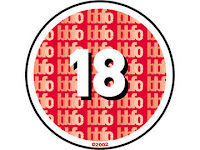
Ratings
These rating are the most popular ratings used for target audiences because they are mostly intellectually demanding as the plots are twisted and hard to understand but starting thrillers target audience is eligible for the mature younger audiences
Film Posters allow us to analyse what films are suited to are own personal taste. Looking at 300 we can see is secaialied for the male audience. In addition as we see there is a strong male in the middle of the poster suggest that this is for the male audience and that the society is probably chovanist which some men may agree. The writing is written in blood suggest that it is gory and bloody and contains a lot of violence that men may enjoy to watch.
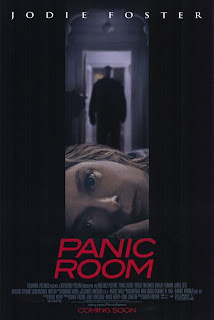 In this poster there is the woman in the front suggest that this is for the female target audience because she symbolises "girl power as she is the main charcater. In people who enjoy the suspense and wonderous element of the man in black as we can not see his identity and his relationship to her.
In this poster there is the woman in the front suggest that this is for the female target audience because she symbolises "girl power as she is the main charcater. In people who enjoy the suspense and wonderous element of the man in black as we can not see his identity and his relationship to her.
Skills Audit.
I have learnt a lot in As media during the time whilst making our thriller film, from how to hold the camera to how to use the program final cut pro.
* We signed a health and safety form, which was like an agreement, and we know how to use he equipment.
* This was the first weeks of our experience with the camera and and tripods and how to use the high tech equipment.
Learning how to use the equipment was the foundation bit for starting our thriller.
we learnt how to:
- use the lenses - focus and auto focus - whichever one suits us best
- using the tripod and how to stand it up and make each leg equal.
- slotting in the memory cards - 4 memory cards.
- the batteries - we always got an extra one just incase.
* We learnt about intertextuality, this is when directors "borrow" each others idea's and use it in their films. we watched various thriller trailers and compared it to each other and saw and gave examples of how each director has borrowed scenes off others and put it into their own film using their own interpretation.
* we gave ideal idea's for our thriller, each person gave lots of ideas and thoughts for the base of our thriller, we got various ideas ( cannot include it all) but we even took into account of ideas about potatoes.
We've also learnt about the 180 degree rule, which meant that if one shot was taken on the right side all shots in that scene should be from the right shot, and the characters should be 180 degree's apart.
We made our own sounds for our own interpretation but before that we found out that not all sounds on the screen are made then and there they have background people to make extra noises which is then put over there to fit in the scene.
so, then our group made our own interpretation and sounds of our own to put into a practise thriller, so we can have a feel how its like to do this for a real film or thriller.
here is our interpretation, Hasan did the filming, me and rochelle did the sounds, then we uploaded it on final cut pro and then put them together to make our final piece:
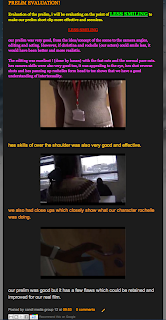

then we made a prelim and made a practise thriller.
and then also evaluated my prelim.
( i did the interview because i was away from my groups prelim)
then we started filming and planning.
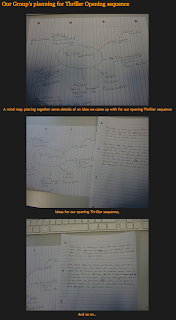
FILMING:

<- day one

< - day two

<- day three ( last day of filming)
then we had to a rough cut for our thriller -
and we also got good feedback form our teacher dan

and this is the technical skills behind the scenes on the thriller
i have learnt a lot in media, and a few things are missing from here, however everything is on the blog if anything else needs to be here. i had great fun working with my group and the equipment and technology.
 |
| equipment |
 |
| health and safety agreement |
* This was the first weeks of our experience with the camera and and tripods and how to use the high tech equipment.
Learning how to use the equipment was the foundation bit for starting our thriller.
we learnt how to:
- use the lenses - focus and auto focus - whichever one suits us best
- using the tripod and how to stand it up and make each leg equal.
- slotting in the memory cards - 4 memory cards.
- the batteries - we always got an extra one just incase.
 |
| intertextuality |
* We learnt about intertextuality, this is when directors "borrow" each others idea's and use it in their films. we watched various thriller trailers and compared it to each other and saw and gave examples of how each director has borrowed scenes off others and put it into their own film using their own interpretation.
 |
| female villan idea |
* we gave ideal idea's for our thriller, each person gave lots of ideas and thoughts for the base of our thriller, we got various ideas ( cannot include it all) but we even took into account of ideas about potatoes.
 |
| 180 degree rule |
 |
| green eyed girl idea |
 |
| our interpretation |
 |
| experts doing sounds |
so, then our group made our own interpretation and sounds of our own to put into a practise thriller, so we can have a feel how its like to do this for a real film or thriller.
 |
| arlington thriller made my group 2 |


then we made a prelim and made a practise thriller.
and then also evaluated my prelim.
( i did the interview because i was away from my groups prelim)
then we started filming and planning.

FILMING:

<- day one

< - day two

<- day three ( last day of filming)
then we had to a rough cut for our thriller -
and we also got good feedback form our teacher dan

and this is the technical skills behind the scenes on the thriller
i have learnt a lot in media, and a few things are missing from here, however everything is on the blog if anything else needs to be here. i had great fun working with my group and the equipment and technology.
Subscribe to:
Comments (Atom)


.gif)









